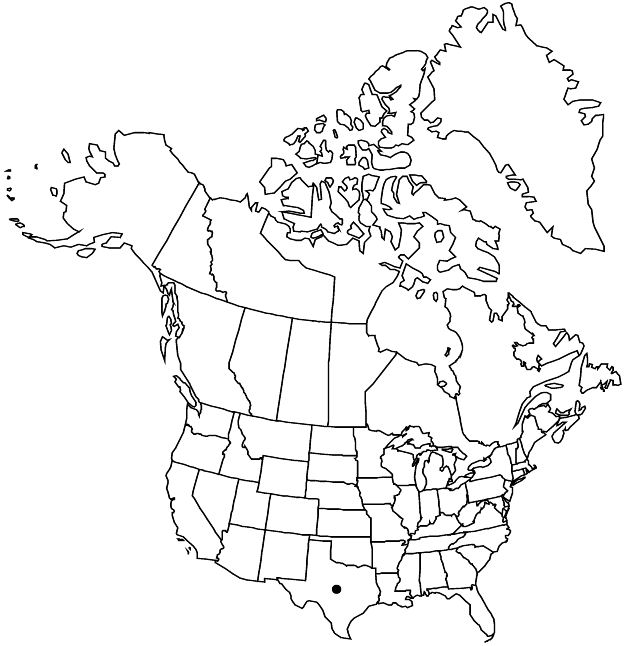Vitis monticola
Proc. Acad. Nat. Sci. Philadelphia 13: 450. 1862.
Plants moderate to high climbing, sparsely branched. Branches: bark exfoliating in shreds; nodal diaphragms 1–2.5 mm thick; branchlets gray to green or brown, if purplish only on one side, terete, sparsely arachnoid or glabrous, growing tips not enveloped by unfolding leaves, sparsely to densely hairy; tendrils along length of branchlets, persistent, branched, tendrils (or inflorescences) at only 2 consecutive nodes; nodes not red-banded. Leaves: stipules 1.5–3 mm; petiole 1/2 blade; blade cordate, 5–8(–10) cm, unlobed or shallowly 3-lobed, apex acute to short acuminate, abaxial surface not glaucous, glabrous or sparsely hirtellous, visible through hairs, adaxial surface usually glabrous. Inflorescences 3–7 cm. Flowers functionally unisexual. Berries black, usually not, sometimes very slightly, glaucous, globose, 8–10 mm diam., skin separating from pulp; lenticels usually present. 2n = 38.
Phenology: Flowering May; fruiting Jul–Aug.
Habitat: Limestone hills and ridges.
Elevation: 300–700 m.
Discussion
Vitis monticola is endemic to dry areas on the Edwards Plateau.
Selected References
None.
